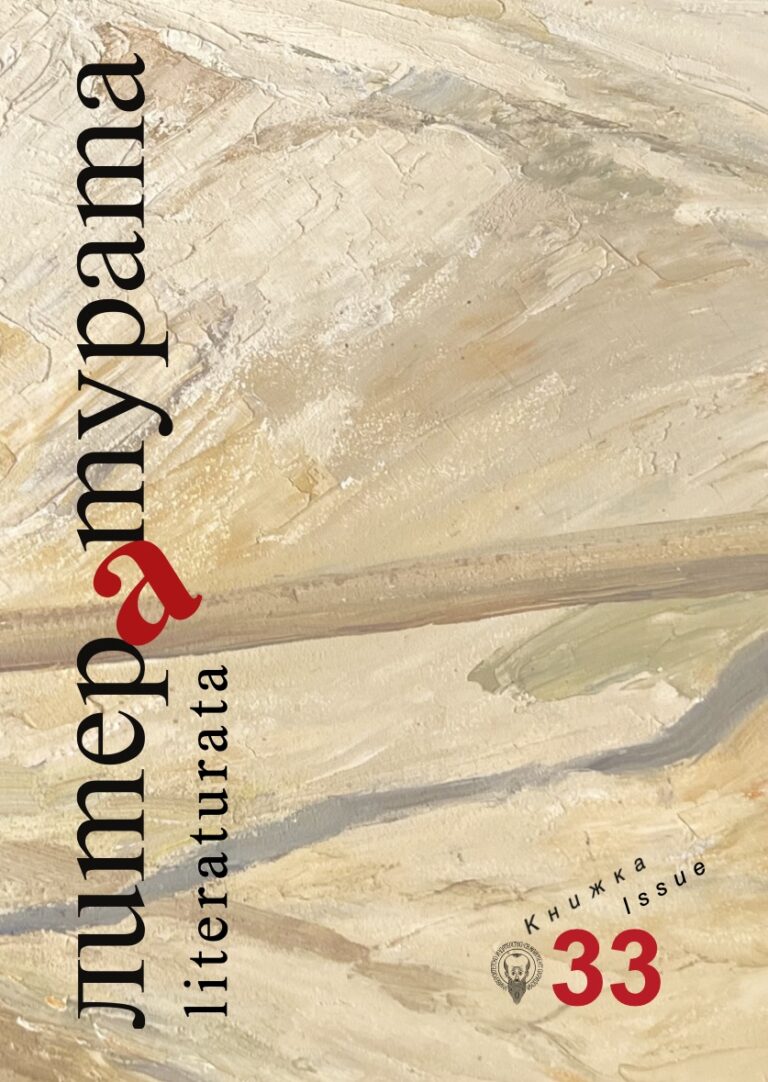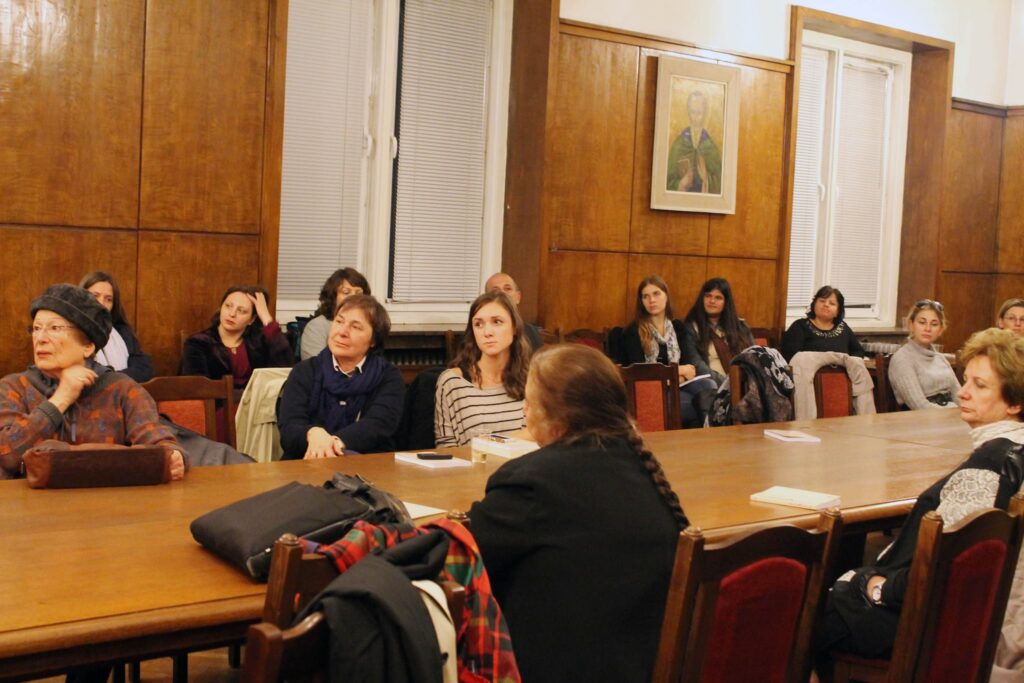About the journal
About the journal
ISSN 1313-1451 – book edition
ISSN 2603-5340 – online edition

Journal "The Literature"
The journal “The Literature” in this restored/renewed format has been in existence since 2007. It is published twice a year. The two issues are “summer” (June/July) and “winter” (November/December).
The journal is indexed in the following international databases of scientific information:
- Central and Eastern European Online Library (CEEOL)
- Originally called the European Reference Index for the Humanities (ERIH PLUS)
- Ebsco
- Cobiss
- Slavic Humanities Index
The publication is indexed in The National Reference List of contemporary Bulgarian scientific publications with scientific review.
The journal is accessible through the OJS system of the University Library for students and employees of Sofia University “St. Kliment Ohridski”. A paid subscription to the journal can be made through Доби Прес ЕООД, and individual issues are available in the University Press bookstore network and in the country.
Site of the journal “The Literature” in the system for anonymous peer-review ScholarOne Manuscripts™.
Principles and objectives
The journal relies on interdisciplinarity and understands literature in the broader context of heterogeneity between texts, of problematizing boundaries, of intertextuality, and of situating literature within a broader cultural context. The journal focuses on different approaches to the interpretive possibilities of literature as well as other cultural fields. The Literature is also keen to look at selected thematisations through the lens of their global relevance. The main priority of the publication is its focus on Bulgarian (regional) contributions to major European and world themes. That is why the emphasis is always on the native voices – of established names, but also of new authors – of young promising scholars, of talented students from all three educational levels who deliver their perspectives on the great debates. The journal is also open to the juxtaposition of humanities inquiries in Balkan, Central and Eastern European contexts. It is gradually establishing itself as a recognisable journal in Central and Eastern Europe as well as in the Balkans.
Unlike the other Bulgarian journals, the thematic focus is the leading one and the texts are written specifically for the issue. The journal is the only one of its kind in Bulgaria that brings together literary, cultural and linguistic texts on a specific issue and topic. The amalgam of directions outlines the broad profile of philology today and preserves this lost status. We can therefore say that for the scale of Bulgaria, where there are generally very few humanities journals, it is unique.
The Literature is also taking shape as a focal point of Bulgarian studies – its Editorial Board includes some of the best Bulgarian and foreign scholars in the world. Its ambition is to be a tribune for them, as well as for new generations of students, to not only make their achievements visible, but also to help preserve Bulgarian studies around the world.
Structure of the journal
The first very important “section” of the journal is the translation section. It can be said that the policy of the journals is related to the establishment of Bulgarian humanities as being comparable to the global ones.
The second section is devoted to publications by Bulgarian authors written specifically for a particular issue. It is the Editorial Board’s responsibility to strengthen cooperation with the national academic community, to establish contacts with other cultural institutions such as libraries and museums, and to create an ethos gravitating towards the journal. Here, Bulgarian scholars from all Slavic, and not only Slavic, countries have been recruited as authors, as well as scholars from other universities around the world, who can also offer their articles in English, but on the subject of the booklet.
The Literature also provides a field for current research and educational debates. It maintains a regular section for reviews of new books. It thus aims at both a kind of topical ‘relevance’ of themes, but also at enlightenment aimed at a student audience. Representatives of this group also find systematic expression as authors in the Debuts section.
The task of the journal is to reach out to a wider interested audience and to communicate successfully with the more pragmatic new generations – the journal’s website is a mediator in this respect.
> View the most important thematic fields of the journal
- Theory of translation
- Comparative Studies - Contemporary Problems and Challenges
- Quier theories
- World literature, national literature, migrant literature
- Literary history today
- Love and literature, literature and pandemic
- Popular and canonical literature
- Children’s literature
Team
Meet the people who work tirelessly on each issue of the magazine!

